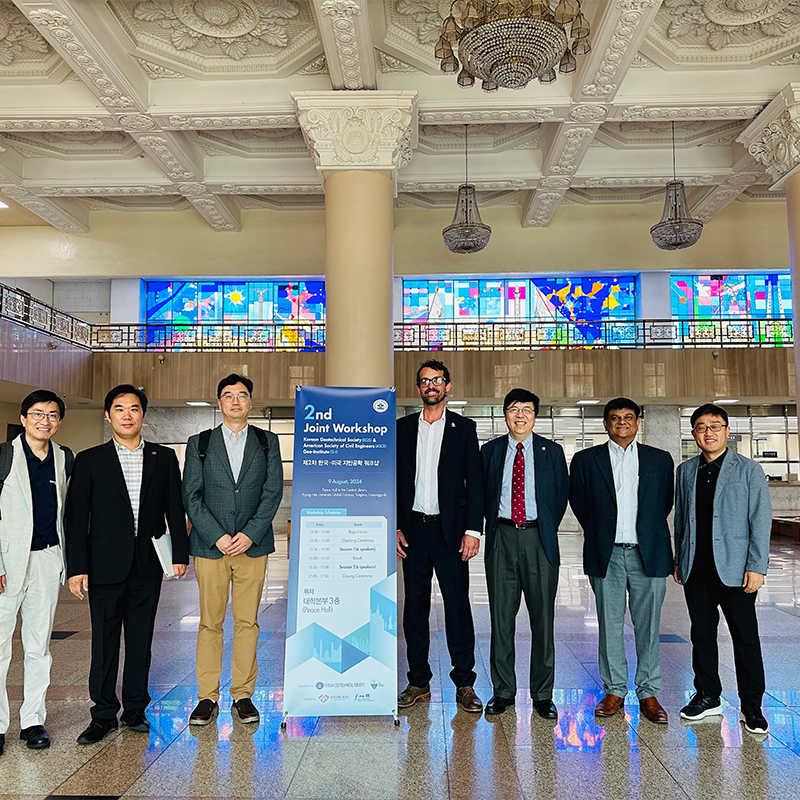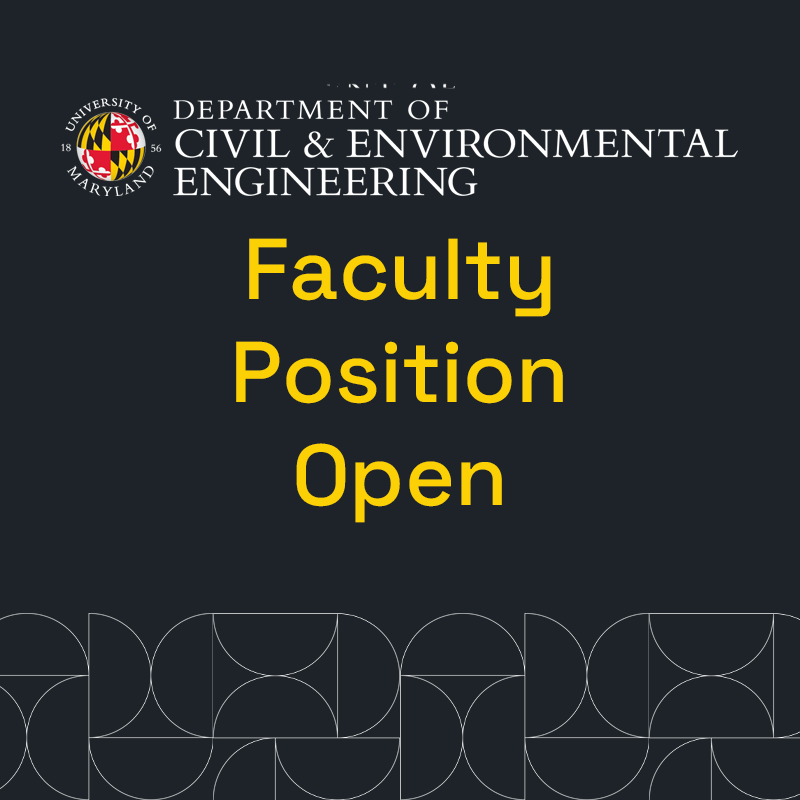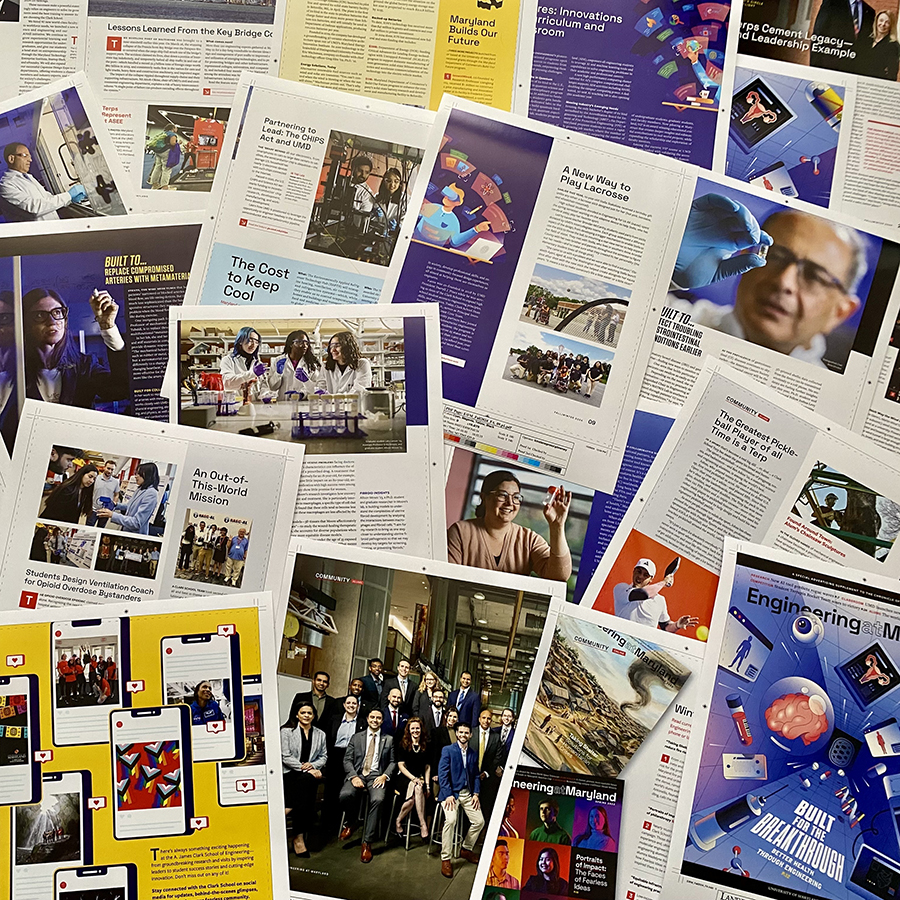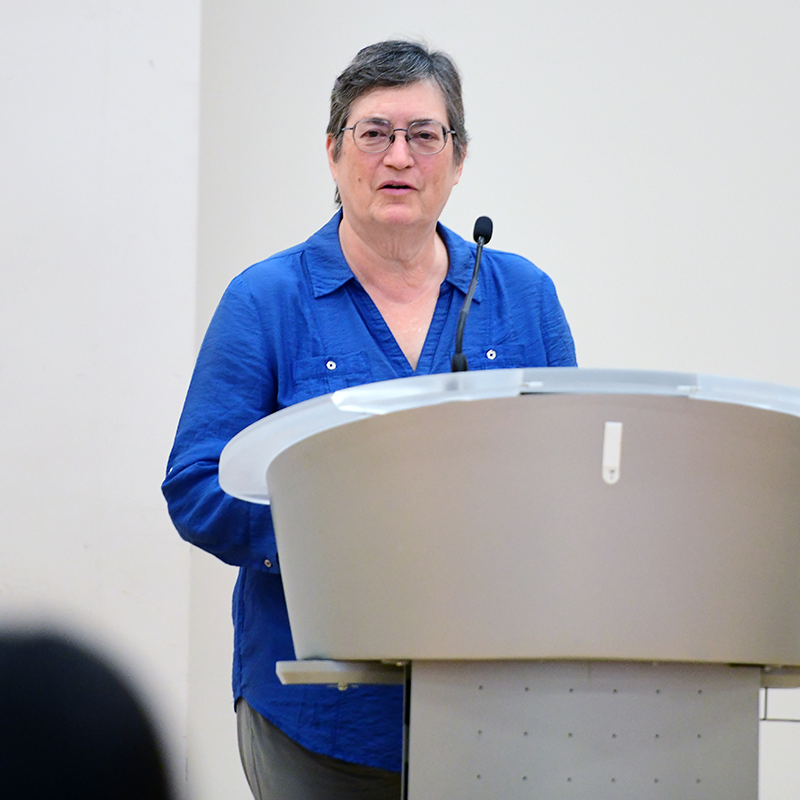News Story
Aghilinasrollahabadi, Namadi Win Research Awards
The UMD civil and environmental engineering department congratulates the winners of the 2024 Best Doctoral and Master’s Research Awards. Khashayar Aghilinasrollahabadi, advised by Guangbin Li and Birthe Kjellerup, won the Best Doctoral Research Award for his dissertation, Enhancement of Biological Phosphorous Removal (BPR) in Wastewater Treatment.
Saeed Saleh Namadi, advised by Deb Niemeier, won the Master’s Research Award for his thesis, Using Geographically Weighted Models to Explore Temporal and Spatial Varying Impacts on Commute Trip Change Due to COVID-19.
Both will be nominated for the Clark School Dean's Research Award competition.
 Khashayar Aghilinasrollahabadi
Khashayar Aghilinasrollahabadi
Enhancement of Biological Phosphorous Removal (BPR) in Wastewater Treatment
This research focuses on improving Biological Phosphorous Removal (BPR) processes by evaluating the efficiency of various supplementary carbon sources, including fatty acids, alcohols, and commercially available carbon sources like MicroC® 2000 and MicroC® 3000. Additionally, economical assessment of different configurations for the BPR were studied to enhance and address the sustainability of the process. In this study, the P removal performance of a full-scale WRRF was also evaluated to assess the potential for side-stream enhanced BPR (S2EBPR) implementation. Samples from the S2EBPR process were tested for kinetic parameters of organisms, including rates of anaerobic P release, anaerobic COD uptake, and aerobic P uptake, using laboratory-scale batch experiments. Operational data, such as temperature, influent composition, and alum consumption, were statistically analyzed to elucidate the relationships between operational and seasonal factors and kinetic parameters. The study also aims to provide tools for decision-makers to optimize BPR over chemical precipitation.
"I am grateful for the support and eager to make a difference," Aghilinasrollahabadi said.
 Saeed Saleh Namadi
Saeed Saleh Namadi
Using Geographically Weighted Models to Explore Temporal and Spatial Varying Impacts on Commute Trip Change Due to COVID-19
The COVID-19 pandemic profoundly impacted daily life and travel behaviors, underscoring the critical importance of understanding these behavioral shifts. This study examines the effects of demographic and socioeconomic factors on commuting behavior during the COVID-19 pandemic using extensive mobile device location data across counties in the Washington, D.C., Maryland, and Virginia (DMV) area. Employing linear regression and geographically weighted regression (GWR) models, it assesses short- and long-term impacts on commuter trips. Initial findings highlight that counties with higher initial rates of active commuting (walking and biking) experienced significant early reductions in commute trips, though this effect waned over time. Conversely, reliance on public transit (bus and rail) showed increased trip reductions in the long term. The study identifies positive correlations between median income levels and reduced commute trips, while sectors requiring outdoor operations, such as manufacturing and food services, displayed negative correlations. The research underscores the shift from global to localized commuting impacts as the pandemic progressed, revealing evolving spatial dynamics in travel behavior.
Commented Namadi: "Civil engineering builds a better world."
Published July 10, 2024









